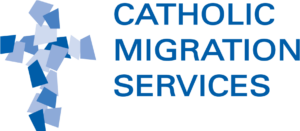Uniting for Ukraine Humanitarian Parole Process
IMMIGRATION UPDATE AS OF: Tuesday, April 26, 2022
Uniting for Ukraine Humanitarian Parole Process
Humanitarian parole is a temporary admission to the US for urgent humanitarian reasons or significant public benefit. Parole allows the person to apply for work permit and a Social Security number, but it is not an immigration status and does not provide a path to legal permanent residence. Once in the US, an individual who has been paroled can apply for asylum, another immigration benefit (if qualified), or apply to renew the parole before it expires.
The Uniting for Ukraine program is a streamlined process for displaced Ukrainian citizens and their immediate relatives to apply for humanitarian parole. The program started on April 25, 2022.*
To be eligible, beneficiaries:
- Had to have resided in Ukraine prior to the Russian invasion (through February 11, 2022) and have been displaced because of the invasion;
- Be a Ukrainian citizen or an immediate relative of a Ukrainian citizen (spouse, common law partner, or unmarried child under the age of 21, accompanying the principal Ukrainian citizen to the US);
- Children under 18 must travel to the US with their parents or legal guardians. A child who is not traveling with their parent or legal guardian who arrives at a port of entry may be placed in the custody of the Department of Health and Human Services (HHS). A child who needs to travel to the US to be reunited with a parent or legal guardian may apply through the standard Form I-131 parole process.
- Have a valid Ukrainian passport (or be a child listed on the parent’s passport);
- Have a supporter in the US – a US-based individual in lawful immigration status, acting in personal capacity or on behalf of a non-governmental organization – who demonstrates sufficient resources to “receive, maintain, and support” the beneficiary;
- Complete vaccinations and other public health requirements; and
- Pass biometric and biographic screening. Those who are approved will be allowed to travel to the US at their own expense, where they may be paroled for a period of up to two years and will be eligible for work authorization.
Five-step process:
- First step: the US-based supporter completes and files Form I-134 online with USCIS, which requires giving biographic and financial information about the supporter and biographic information about the beneficiary.
- The supporter must be a US citizen, US national, permanent resident, asylee, refugee, parolee, non-immigrant in lawful status, or beneficiary of TPS, deferred action or Deferred Enforced Departure.
- The supporter must pass security checks and demonstrate the financial ability to support the beneficiary in the US.
- Types of support may include:
- Receiving the beneficiary at the port of entry and providing transportation to housing;
- Ensuring appropriate housing, basic necessities, health care and medical needs; school enrollment, etc.
- Helping the beneficiary complete necessary applications for employment authorization, Social Security card, and other services.
- Several supporters may join together to have the financial ability to support one or more Ukrainian beneficiaries. In this case, a primary supporter should file a Form I-134 and include in the filing supplementary evidence demonstrating the identity of, and resources to be provided by, the additional supporters and attach a statement explaining the intent to share responsibility.
- Organizations may not serve as the supporter on a Form I-134, but an individual representing the organization may. However, the organization can provide financial support information as part of the evidence submitted with the Form I-134.
- Second step: if the supporter is approved, USCIS e-mails the Ukrainian beneficiary instructions on how to create a myUSCIS account, confirm biographic information and attest to completing all eligibility requirements.
- Third step: beneficiary confirms prior vaccinations against measles, polio and COVID-19. If not vaccinated, the beneficiary needs to receive a first dose before being approved for travel.
- Fourth step: if the beneficiary is approved for travel to the US, must make travel arrangements (including pre-departure testing from COVID) and complete travel within 90 days.
- Fifth step: upon arrival at the US port of entry, beneficiaries will be inspected by US Customs and Border Patrol and considered for parole of up to two years.
- Beneficiaries will undergo biometric vetting.
- All beneficiaries two years of age or older will need to be screened for tuberculosis within two weeks of arriving into the US.
After being paroled in the United States, beneficiaries:
- Can apply for work authorization; if unable to pay the application fee, can apply for a fee waiver.
- Can apply for a Social Security number and card.
- Can apply for other immigration benefits, if eligible.
- Must report changes of address to USCIS within 10 days of moving at USCIS Online Change of Address.
- Can apply to renew parole before it expires.
*Note for Ukrainian citizens in Mexico: over the past few months, many Ukrainians who traveled to Mexico and presented themselves at the US southern border were granted humanitarian parole in on a case-by-case basis. However, starting on April 25, 2022, Ukrainians who present at the US border without a valid visa or other pre-authorized travel will be denied entry and referred to apply through the Uniting for Ukraine program.
For more information on the Uniting for Ukraine parole program, go to: Uniting for Ukraine.
*******************************************************************************************************
If you have questions, you can call Catholic Migration Services at (718) 236-3000, extension 2015, extension 2018, or you can e-mail us at immigrationassistance@catholicmigration.org with your name, phone number, languages you speak, and your question.
Click here to download this update as a PDF: Uniting for Ukraine Humanitarian Parole Process

